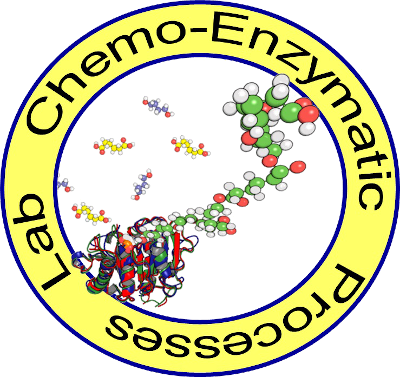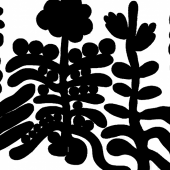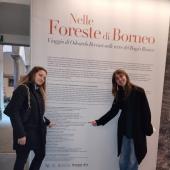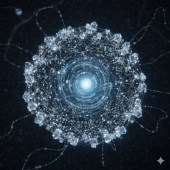Alessandro Pellis’ CIRCULARIZE project funded with an ERC starting grant 2023
The European Research Council has announced 400 starting grants for young scientists and scholars across Europe for 2023. The funding, totaling EUR 628 million, will support cutting-edge research in a wide range of fields, from medicine to social sciences, from physics to the humanities, and will help early-career researchers to launch their projects, form their teams and develop their best ideas.
The 400 funded projects correspond to 14.8% of the 2696 applicant projects, divided into the 3 macro-areas: Life Sciences, Physical Sciences and Engineering, Social Sciences and Humanities:
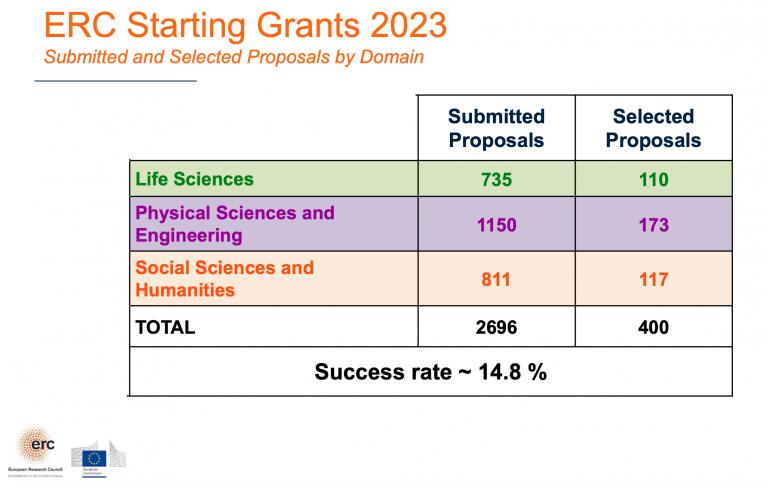
The proposers work at institutions, universities and research organizations in 24 different countries and are of 44 different nationalities:
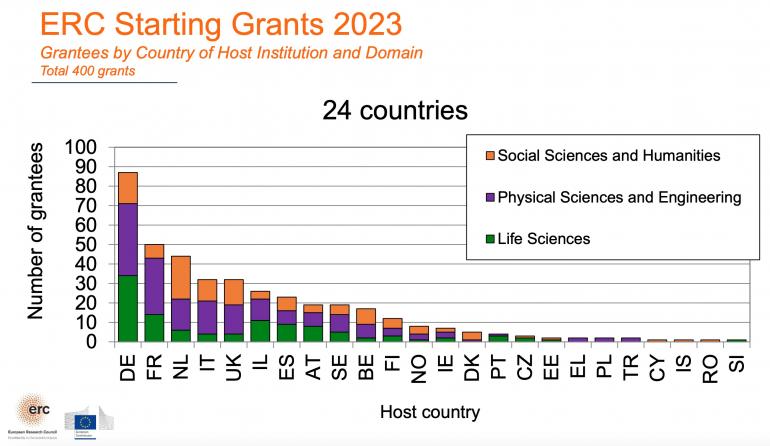
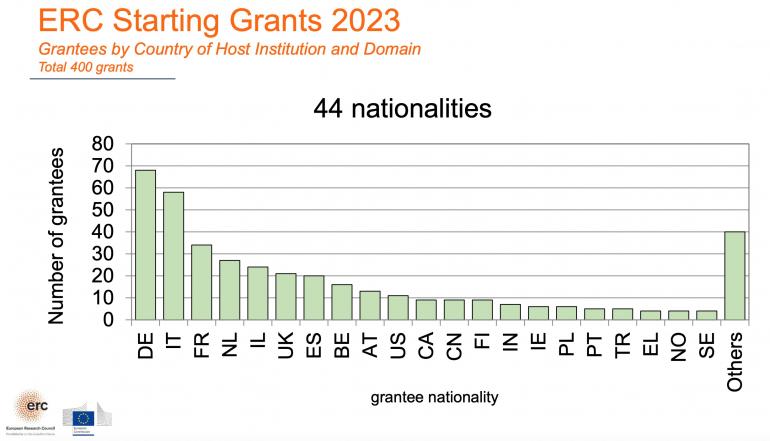
The distribution of projects funded by male and female researchers is more or less similar for Life Sciences and Social Sciences and Humanities, while there is a clear predominance of male researchers – and a non-binary proposer – for Physical Sciences and Engineering:
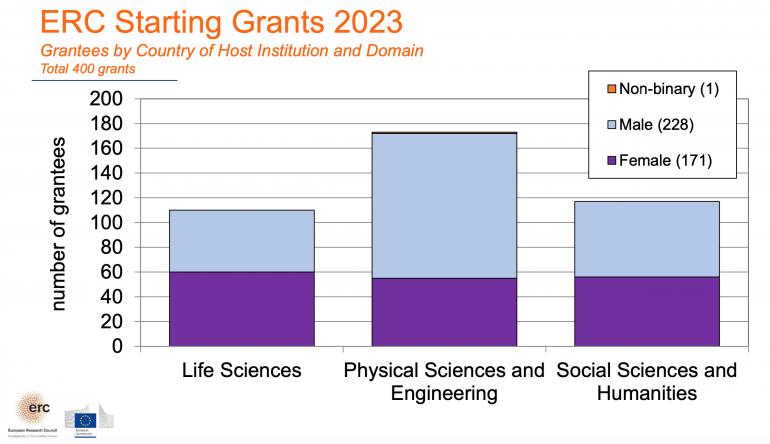
An ERC Starting Grant 2023 to UniGe with CIRCULARIZE
The University of Genoa has been awarded a €1.5 million ERC Starting Grant 2023 with Alessandro Pellis' CIRCULARIZE project. For the next five years, the Chemo-Enzymatic Processes Laboratory will work on the chemo-enzymatic conversion of renewable monomers into circular functional materials.
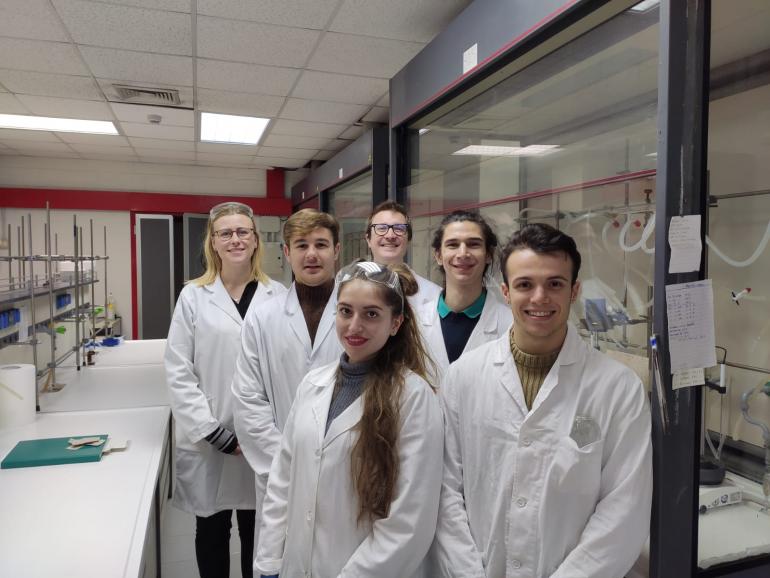
Nele Schulte, Francesco Papatola, Ioana Cristina Benea, Alessandro Pellis, Francesco Raboni, Giacomo Lombardo
Which problems does the project address and which solutions does it provide?
To produce the plastics we use on a daily basis, industry has always used petroleum derivatives. What was not considered at the beginning of the history of plastics in the second half of the 19th century was the constant accumulation of their residues in the environment. Responsibility for the current situation lies not only with inconsiderate users, be they ordinary citizens or large companies, but also with the technical difficulty of recycling these extremely heterogeneous materials. This problem, as is well known, contributes significantly to accelerating climate change and land degradation, posing an existential threat to Europe and the entire world.
To find a solution, the European Green Deal aims to transform the European Union into a modern, competitive economic system in which natural resources can be used efficiently while at the same time allowing for their periodic preservation and regeneration.
New polymers are needed
The need to develop a new sustainable polymer chemistry has led to the development of various renewable materials of natural origin and the use of biocatalysis for the synthesis of polymers and their recycling.
Nowadays, considering the multifunctional monomers (which we can imagine as small bricks with which polymers are 'built') derived from biomass, it can be observed that the classical chemo-catalytic synthetic techniques used by industries have major limitations in terms of selectivity (obtaining unwanted by-products) and the use of toxic or environmentally harmful compounds.
The solution comes from new technologies
Starting from the technological limits of the production techniques currently used by industries, the CIRCULARIZE project (Chemo-enzymatic processing of bio-based building blocks to circular functional materials) aims to create and apply new synthetic technologies based on sustainable chemo-enzymatic processes to develop a library of 100% renewable polymers that have 'intelligent' characteristics and are at the same time biodegradable. A project to convert renewable resources into advanced functional materials using highly selective synthetic techniques that respect the principles of green chemistry at every level.
CIRCULARIZE aims to achieve this goal by means of new cross-sectoral approaches involving biotechnology, organic chemistry and materials science and aiming to create new knowledge in the application of enzymes as natural catalysts for the synthesis and recycling of polymeric materials with zero impact on the environment.
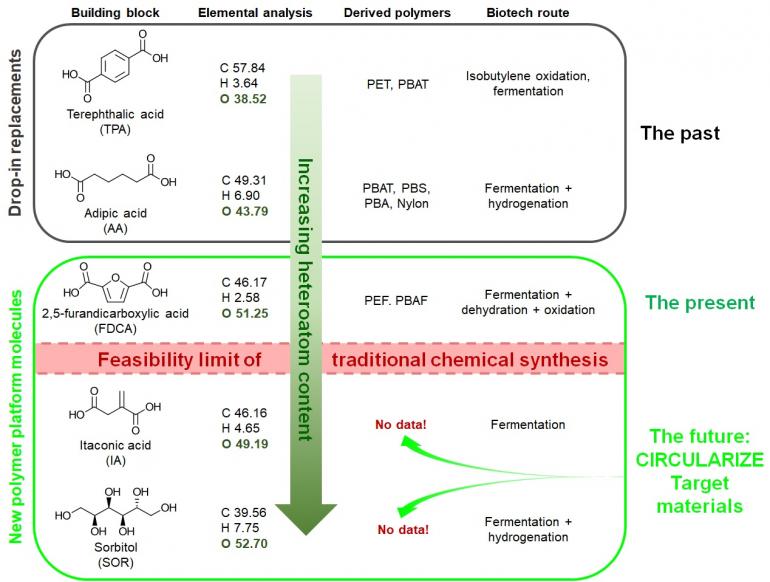
In addition to Principal Investigator Alessandro Pellis, a researcher at the Department of Chemistry and Industrial Chemistry - DCCI of the University of Genoa where he directs the Chemo-Enzymatic Processes Laboratory (CEPL), the project will involve 2 post-doctoral researchers and 4 PhD students who will be recruited to develop the ideas contained in the project proposal. The working group will also involve several master's students who will be trained on specific tasks.
